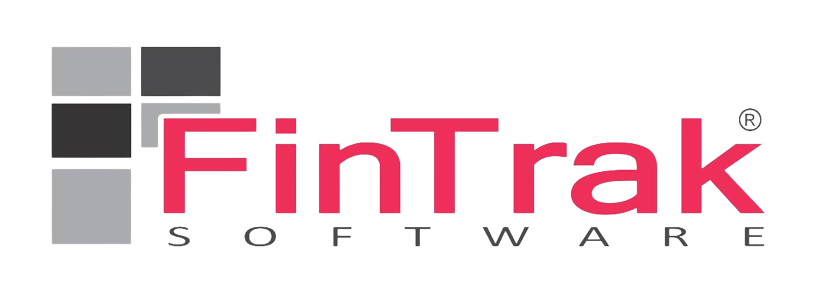Introduction
Financial reporting software refers to a specialized tool that enables financial institutions to streamline and automate their reporting processes. It allows these institutions to collect, analyze, and present financial data in a structured and organized manner. The importance of financial reporting cannot be overstated for financial institutions as it provides crucial information about their performance, profitability, and overall health.
Financial reporting serves as the backbone of decision-making within these institutions. It helps management identify trends, assess risks, and make informed strategic decisions. Additionally, accurate and timely financial reports are essential for regulatory compliance purposes. Without reliable financial reporting software, financial institutions would struggle to meet the complex requirements imposed by regulatory bodies.
Benefits Of Using Financial Reporting Software For Financial Institutions
One of the primary benefits of using financial reporting software is improved accuracy and efficiency in generating reports. Manual processes are prone to errors due to human intervention; however, with automated software solutions in place, data entry errors can be minimized or eliminated. This not only saves time but also ensures that the reports generated are accurate and reliable.
Furthermore, financial reporting software enables better decision-making within financial institutions by providing real-time access to critical information. With customizable dashboards and interactive visualizations at their disposal, managers can quickly analyze data from various perspectives and gain valuable insights into their institution’s performance.
Another advantage is enhanced regulatory compliance achieved through standardized templates provided by the software solution itself or through customization options available within the system. These templates ensure that all necessary information required by regulators is included in the reports while adhering to specific formatting guidelines.
Lastly, implementing a robust financial reporting software solution can result in significant cost savings for an institution over time. By automating manual tasks such as data collection and consolidation or report generation itself, staff members can focus on more value-added activities rather than spending hours on repetitive tasks.
Key Features of Financial Reporting Software for Financial Institutions
Data visualization and analysis is a key feature of financial reporting software. It allows users to transform complex financial data into easy-to-understand visual representations such as charts, graphs, and tables. This enables stakeholders to quickly identify trends, patterns, and outliers within the data.
Customizable reporting templates are another essential feature of financial reporting software. These templates can be tailored to meet the specific needs of an institution, ensuring that reports are consistent in format and content across different departments or business units.
Automated data collection and consolidation capabilities streamline the process of gathering information from various sources within an institution. This eliminates the need for manual data entry or manipulation, reducing the risk of errors and saving valuable time.
Integration with other systems is also a critical feature as it allows financial institutions to leverage existing infrastructure investments. Financial reporting software should seamlessly integrate with other systems such as general ledger software or enterprise resource planning (ERP) systems to ensure accurate and up-to-date data is used in generating reports.
Types of Financial Reporting Software for Financial Institutions
| Software Type | Description | Features |
|---|---|---|
| Accounting Software | Software that manages financial transactions and records for a business or organization. | General ledger, accounts payable and receivable, payroll, financial statements. |
| Financial Planning Software | Software that helps individuals and businesses plan and manage their finances. | Budgeting, forecasting, investment planning, retirement planning. |
| Investment Management Software | Software that helps financial institutions manage their investment portfolios. | Portfolio management, risk analysis, performance reporting, and compliance monitoring. |
| Regulatory Reporting Software | Software that helps financial institutions comply with regulatory requirements. | Automated reporting, data validation, audit trails, and regulatory updates. |
| Tax Preparation Software | Software that helps individuals and businesses prepare and file their tax returns. | Tax forms and schedules, tax calculators, e-filing, and tax planning. |
There are several types of financial reporting software available for financial institutions depending on their specific needs:
1. General ledger software focuses on recording all transactions within an institution’s accounting system. It provides a comprehensive view of an organization’s financial health by tracking income, expenses, assets, liabilities, and equity.
2. Business intelligence (BI) software goes beyond traditional accounting functions by providing advanced analytics capabilities. It enables users to analyze large volumes of data from multiple sources to gain insights into performance metrics such as profitability ratios or customer segmentation.
3. Regulatory reporting software specializes in meeting regulatory requirements imposed by governing bodies such as central banks or securities commissions. It ensures that institutions comply with complex regulations while automating the process of generating required reports accurately.
4. Budgeting and forecasting software helps institutions plan their future finances by creating budgets based on historical data trends or market projections. It allows organizations to set goals, and track progress against those goals over time while providing real-time visibility into financial performance.
Choosing The Right Financial Reporting Software For Your Financial Institution

Selecting the right financial reporting software for your institution requires careful consideration of various factors. First, it is essential to assess your institution’s specific needs and requirements. This includes identifying the types of reports you need to generate, the level of customization required, and any specific regulatory or compliance requirements.
Once you have a clear understanding of your needs, it is crucial to evaluate different software vendors in terms of their product offerings, reputation in the industry, customer support services, and pricing models. It is recommended to request demos or trial versions from shortlisted vendors to assess how well their software aligns with your institution’s requirements.
In addition to evaluating software vendors, it is important to consider implementation and maintenance costs associated with adopting a new financial reporting solution. This includes factors such as data migration from existing systems, system configuration, and setup costs, as well as ongoing training and support expenses.
Implementation And Integration of Financial Reporting Software for Financial Institutions
Implementing financial reporting software within a financial institution requires careful planning and preparation. It is essential to define clear objectives for the implementation project and establish a project team responsible for overseeing its execution.
Data migration from existing systems can be one of the most challenging implementation aspects. It involves extracting data from legacy systems or spreadsheets while ensuring its accuracy during transfer into the new reporting software. System configuration should also be carefully planned based on an institution’s unique requirements.
User training plays a crucial role in the successful adoption of financial reporting software within an organization. Training sessions should be conducted not only for end-users but also for administrators responsible for maintaining system configurations or generating custom reports.
Best Practices For Using Financial Reporting Software For Financial Institutions
To maximize the benefits derived from using financial reporting software within an institution, several best practices should be followed:
Establishing data governance policies ensures that data used in generating reports is accurate, consistent, and reliable. This includes defining data ownership, establishing data quality standards, and implementing regular data validation processes.
Regularly reviewing and updating reporting processes is essential to adapt to changing business requirements or regulatory guidelines. Institutions should periodically assess the relevance of existing reports, identify areas for improvement or consolidation, and update templates accordingly.
Ensuring data accuracy and consistency requires ongoing monitoring of the reporting system. Regular audits should be conducted to verify that the software is functioning as intended and that reports generated are error-free.
Challenges and Solutions For Financial Reporting Software For Financial Institutions
While financial reporting software offers numerous benefits, it also presents some challenges that institutions need to address:
Data security and privacy concerns are paramount in today’s digital age. Institutions must ensure that their financial reporting software complies with industry-standard security protocols such as encryption or access controls to protect sensitive information from unauthorized access.
Integration with legacy systems can be a complex process due to differences in data formats or structures between old systems and new software solutions. However, by working closely with vendors or engaging third-party integration specialists if necessary, institutions can overcome these challenges through careful planning and execution.
Staff training and adoption can pose a challenge when implementing new financial reporting software within an institution. To address this issue effectively, institutions should provide comprehensive training programs tailored to different user groups while emphasizing the benefits of using the new system over manual processes.
Future Trends in Financial Reporting Software for Financial Institutions
The future of financial reporting software holds several exciting trends:
Increased use of artificial intelligence (AI) and machine learning (ML) will enable more advanced analytics capabilities within financial reporting solutions. AI-powered algorithms will help identify patterns or anomalies within large datasets while ML models will provide predictive insights into future performance based on historical trends.
Greater emphasis on real-time reporting will become more prevalent as institutions seek up-to-the-minute visibility into their finances. Real-time dashboards displaying key performance indicators (KPIs) will enable managers to make faster, data-driven decisions.
More cloud-based solutions will emerge as institutions recognize the benefits of scalability, flexibility, and cost-effectiveness offered by cloud computing. Cloud-based financial reporting software allows for easy access from anywhere at any time while reducing the need for on-premises infrastructure.
Financial reporting software plays a crucial role in the success of financial institutions. By automating manual processes, improving accuracy and efficiency, enabling better decision-making, enhancing regulatory compliance, and generating cost savings, these software solutions provide significant value to organizations.
With key features such as data visualization and analysis capabilities, customizable reporting templates, automated data collection and consolidation functionalities, and seamless integration with other systems; financial reporting software empowers institutions to streamline their reporting processes effectively.
By following best practices such as establishing data governance policies or regularly reviewing reporting processes; institutions can ensure that they derive maximum value from their financial reporting software investments. Overcoming challenges related to data security concerns or staff training is essential for successful adoption within an organization.
Conclusion
Looking ahead into the future trends of financial reporting software reveals exciting developments in AI-powered analytics capabilities real-time dashboards or cloud-based solutions. These advancements will further enhance decision-making abilities while providing greater accessibility and scalability for institutions worldwide.
Some of the key trends in financial reporting software include the integration of artificial intelligence (AI) technology, which will enable more advanced data analysis and predictive modeling. This will allow organizations to gain deeper insights into their financial data and make more informed decisions. Additionally, real-time dashboards will become more prevalent, providing users with up-to-date information and allowing for faster decision-making.
Cloud-based solutions will also continue to grow in popularity, as they offer increased accessibility and scalability for institutions of all sizes. Overall, these advancements in financial reporting software will revolutionize the way organizations manage and analyze their financial data, leading to more efficient and effective decision-making processes.
Take advantage of our state-of-the-art technology today. Don’t let outdated financial systems hold your business back any longer. Our financial reporting software solutions are designed to increase efficiency, accuracy, and transparency in all aspects of your financial operations. From budgeting and forecasting to accounting and reporting, our software can handle it all. With our user-friendly interface and customizable options, you’ll be able to easily manage your finances and make data-driven decisions.
Don’t just take our word for it, schedule a free consultation with one of our experts to see our software in action and learn how it can be tailored to meet the unique needs of your business. With our financial reporting system, you can streamline your financial processes and gain valuable insights that will help you make better decisions.
Don’t wait any longer, take control of your financial reporting system today. Request a demo now!
